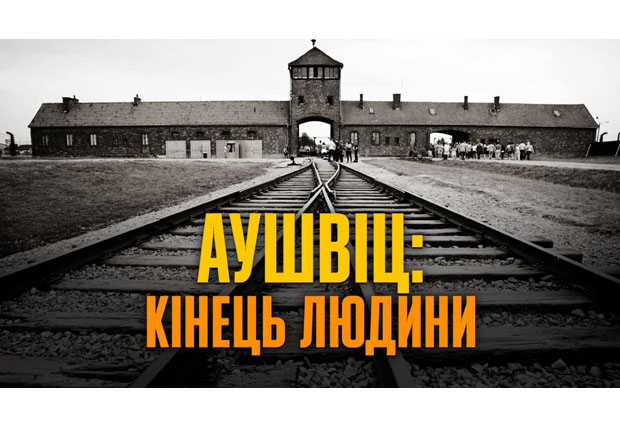The banality of evil: from Auschwitz to Mariupol
 The YouTube channel "10 Questions to a Historian" featured an interview about the history of the Auschwitz death camp, which has become an undisputed symbol of Nazi crimes in World War II. This is the story of how some people (including educated and seemingly mentally healthy people) killed other people on a scale and systematic basis that had never been seen before. The "banality of evil" was that the virtue of loyalty turned bureaucrats into committed genocide performers.
The YouTube channel "10 Questions to a Historian" featured an interview about the history of the Auschwitz death camp, which has become an undisputed symbol of Nazi crimes in World War II. This is the story of how some people (including educated and seemingly mentally healthy people) killed other people on a scale and systematic basis that had never been seen before. The "banality of evil" was that the virtue of loyalty turned bureaucrats into committed genocide performers.
Today, the Russian-Ukrainian war is the most urgent and painful problem for our country. The entire civilised world is paying attention to the events in Ukraine. Today, Russia is destroying the post-World War II system of international relations, undermining international peace and security by waging the largest continental war in Europe since World War II against a sovereign state. Now, just as eighty years ago, Ukraine is fighting against totalitarianism; fighting for the future - its own, and the future of Europe and the entire civilised world.
With the unfolding of russia's full-scale aggression against Ukraine, everyone felt that the memory of the crimes and experiences of the Second World War was being reflected in current events. The students already knew the interpretation of the words "genocide", "filtration camp", "Gauleiter", "ghetto" from their history classes, when they studied the totalitarian ideologies of the twentieth century. But the worst thing is that they have all heard these words in the context of the present, and they have encountered them in the twenty-first century.
Analysing the feedback, we can state that the meeting with Anatolii Podolskyi was definitely not without effect, as everyone received new historical knowledge and enjoyed the emotional presentation of the material.
Yuliia Rudenko, PhD, Associate Professor
Announcements
MoreLatest News
-
(No) Children’s Stories Exhibition in Odesa
Starting the year with a powerful event - from January 19 to 30, 2026, Odesa will host the exhibition (No) Children’s Stories for the first time.
[More] -
Bibliographic Database “Jewish Studies in Independent Ukraine”
The Ukrainian Association for Jewish Studies has begun work on a project to create a bibliographic database entitled Jewish Studies in Independent Ukraine. The project envisages the creation of a reference resource covering various types of academic publications, as well as dissertations and educational publications
[More] -
Happy New Year 2026 from the Ukrainian Center for Holocaust Studies!
2025 was a year of action and partnerships. With our team and partners, we made many meaningful initiatives possible.
[More] -
The Formation of Holocaust Scholarly Discourse in European Nations
On December 16, 2025, the State Institution Institute of World History of the National Academy of Sciences of Ukraine held the International Scientific Conference The Formation of Holocaust Scholarly Discourse in European Nations.
[More] -
Research Team Meeting for the Project “One Stone - One Life: 80 Stumbling Stones for Kyiv”
On 13 December 2025, the first in‑person meeting of school research teams took place in Kyiv. These teams are currently studying the biographies for new Stumbling Stones. Five teams from Kyiv and one from Odesa - history teachers working together with their students - are each conducting their own research.
[More]




